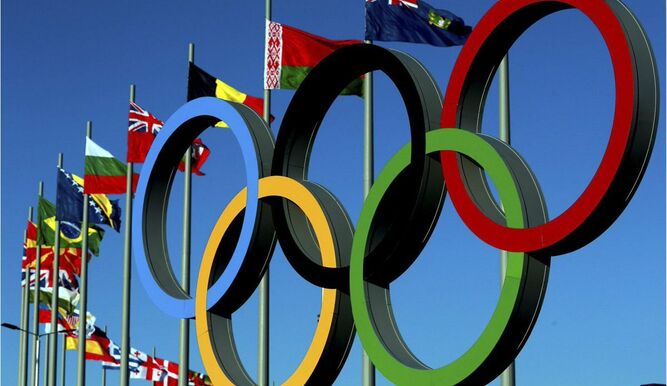▲ Doctors try to save an injured girl yesterday in Mariupol, eastern Ukraine. The minor perished.Photo App
CJ Polychroniou*
Newspaper La Jornada
Monday, February 28, 2022, p. 5
Irrational political panic is as American a phenomenon as apple pie. It often arises as a result of a potential inability of the powers that be to control the outcome of events that pose challenges to the interests of the existing socio-economic order or the status quo of the geostrategic environment. The cold war era fills volumes about this phenomenon, but it is also evident in earlier periods – for example, the first red terror
after the First World War – and we can all see clear parallels in the current situation, with the reactions to the conflict in Ukraine and the emergence of China as a global power.
In the following interview, renowned intellectual Noam Chomsky addresses the phenomenon of irrational political panic in the United States, with an emphasis on current events on the foreign policy front, and the dangers of seeking to maintain global hegemony in a multipolar world.
-The political culture in the United States seems to have a propensity towards alarmism when it comes to political events that are not in line with the economic interests, the ideological framework and the strategic interests of the powers that be. In fact, from the anti-Spanish panic of the late 1890s to the current fury over Russia’s political concerns over the Ukraine, and China’s growing role in world affairs and everything in between, the political establishment and The media in this country tend to respond with total alarm to events that do not align with US interests, values, and goals. Can you comment on this peculiar state of affairs, with an emphasis on what is happening today in relation to Ukraine and China?
-Very sure. Sometimes it’s hard to believe. One of the most significant and revealing examples is the rhetorical framework of the main planning document of the first years of the cold war, the NSC-68 of 1950, shortly after Chinese loss
, which triggered a hysteria in the United States. The document set the stage for a huge expansion of the military budget. It is worth remembering today, when the echoes of those follies are reverberating, and not for the first time: it is perennial.
The policies recommended by the NSC-68 have been widely discussed in academia, though the hysterical rhetoric is largely ignored. It reads like a fairy tale: absolute evil confronted by total purity and noble idealism. On one side is the slavic state
with his fundamental design
and its inherent compulsion
to win absolute authority over the rest of the world
destroying all governments and the society structure
everywhere. His absolute evil contrasts with our total perfection. The core purpose
of the United States is to ensure the dignity and worth of the individual
everywhere. Their leaders are encouraged by generous and constructive impulses, and the absence of greed in our international relations
This is particularly evident in the traditional domains of US influence, the Western Hemisphere, which has long been the beneficiary of Washington’s tender concern, as its inhabitants can attest.
Anyone familiar with this history and the actual balance of global power at the time would have reacted with utter stupefaction to such a depiction. Its authors at the State Department could not have believed what they were writing. Some later gave an indication of what they were up to. The then Secretary of State, Dean Acheson, explained in his memoirs that, in order to give a boost to the huge planned military expansion, it was necessary crush the general conception of the highest level of government
in ways that were clearer than the truth
. The highly influential Senator Arthur Vanderberg no doubt understood this when he advised (in 1947) that the government should scare the american people
to get him out of his pacifist backwardness.
There are many precedents, and the drums are now beating with warnings about American complacency and naivety about the intentions of the crazy dog
Putin to destroy democracy everywhere and bend the world to his will, now in alliance with the other great satan
Xi Jinping.
The Putin-Xi summit on February 4, timed with the opening of the Olympic Games, was recognized as a major event in world affairs. The article in the New York Times is entitled a new axis
, a cheeky allusion. The note reports the reincarnation intentions of the Axis powers: The message that China and Russia have sent to other countries is clear
David Leonhardt writes. They will not pressure other governments to respect human rights or hold elections
. And, to Washington’s dismay, the Axis is drawing in two nations from the american field
, Egypt and Saudi Arabia, stellar examples of how the United States respects human rights and elections in its field: sending huge amounts of weapons to these brutal dictatorships and participating directly in their crimes. The New Axis also holds that a powerful country must be able to impose its will within its declared sphere of influence. He must even be able to overthrow a nearby weak government without the world interfering.
… an idea that the United States has always abhorred, as the historical record shows.
2,500 years ago, the oracle of Delphi issued: Know yourself
. It is worth remembering, perhaps.
As in the case of the NSC-68, there is method in madness. China and Russia are real threats. The world hegemony does not take them lightly. There are certain notable commonalities in the way American opinion and policy react to these threats. They deserve some consideration.
The Atlantic Council describes the formation of the New Axis as a tectonic shift in global relations
with plans that cause vertigo
: The sides agreed to link their economies more closely through cooperation between China’s Belt and Road Initiative and Putin’s Eurasian Economic Union. They will work together to develop the Arctic. They will deepen coordination with multilateral institutions and combat climate change
.
We should not underestimate the great significance of the Ukrainian crisis, adds Damon Wilson, president of the National Endowment for Democracy. What is at stake in the current crisis is not just Ukraine, but the future of freedom
nothing less.
Strong and immediate action must be taken, says Senate Republican Minority Leader Mitch McConnell: Biden must use every tool in his box and impose tough sanctions before an invasion, not after
. There is no time to dwell on Macron-esque appeals to the angry bear to quell its violence.
The received doctrine is that we must confront the formidable threat of China and remain firm on Ukraine, while Europe wavers and Ukraine asks us to tone down the rhetoric and seek diplomatic measures. Fortunately for the world, Washington remains steadfast in its dedication to what is right and just, even if it stands nearly alone, as when it invaded Iraq and drowned Cuba, defying virtually unanimous international outcry, to take just two examples.
– One of the most remarkable developments in the international arena today is that, while the United States withdraws from the Middle East and elsewhere, China approaches them, but with a different strategic approach and a general agenda. Instead of bombs, missiles and coercive diplomacy, China expands its influence through soft power
. In fact, US expansion abroad always depended overwhelmingly on the use of hard power, and consequently left only black holes behind its withdrawal. To what extent, as some might argue, is this the result of a nation young, ignorant of history, and inexperienced in global affairs (although it would be hard to find any examples of benign imperialism)?
I don’t think the United States has forged new paths in Western imperial brutality. Just consider his immediate predecessors in world control. Britain’s wealth and world power stemmed from piracy (heroic figures like Sir Francis Drake), the plundering of India by deception and violence, hideous slavery, the world’s largest drug-trafficking enterprise, and other equally refined acts. France was no different. Belgium broke records for heinous crimes. Today’s China cannot be said to be benign within its much more limited scope. It would be difficult to find exceptions.
The two cases you mention have highly instructive features, shown clearly, if unintentionally, by the way they are represented. Let’s look at a New York Times article about the growing Chinese threat. The headline says: As the US withdraws from the Middle East, China draws closer, expanding its ties with states in the area through vast investments in infrastructure and cooperation in technology and security.
.
–The influence of the United States is diminishing in the international system, but one would not easily come to this conclusion if one looks at the current US security strategy, which is still designed around the doctrine of the two wars
even if it doesn’t expressly say so. In this context, could it be argued that the US empire is weakening in the 21st century, and that the end of the empire will not be a peaceful event?
-For many years, it has been predicted in foreign policy circles that China will surpass the United States and dominate world affairs, a dubious prospect, in my opinion, unless the United States maintains the current course of self-destruction, which perhaps would accelerate with the victory in the Congress of the denialist party that is expected in November.
As we have seen, for some years the old Republican Party has been more accurately described as a radical insurgency
which has abandoned normal parliamentary politics, borrowing the terms of political analysts
Thomas Mann and Norman Ornstein of the American Enterprise Institute, a decade ago, when the appropriation of that insurgency by Donald Trump was not yet a nightmare.
(Interview originally published on: https://truthout.org/articles/chomsky-us-push-to-reign-supreme-stokes-the-ukraine-conflict/)
*CJ Polychroniou is a political scientist and political economist, writer and journalist, who has taught and worked at numerous universities and research centers in Europe and the United States. One of his most recent books is The Precipice: Neoliberalism, the Pandemic, and the Urgent Need for Radical Change (anthology of interviews with Noam Chomsky, 2021).
© Truthout. Reproduced with permission.
Translation: Jorge Anaya
Full interview at: https://www.jornada.com.mx/ultimas/politica/2022/02/28/chomsky-el-supre-macismo-de-eu-atiza-el-conflicto-en-ucrania-2036.html















